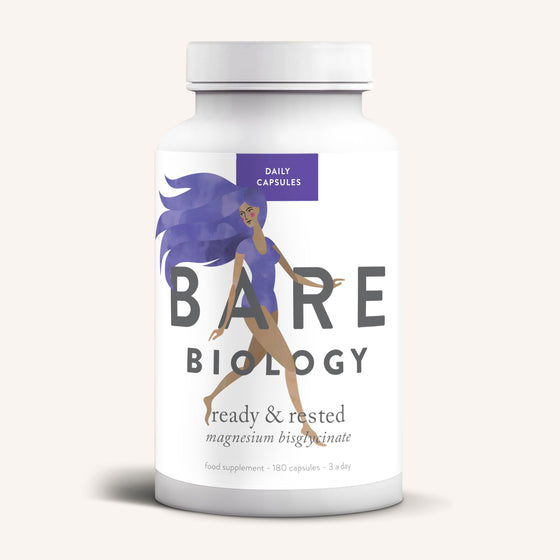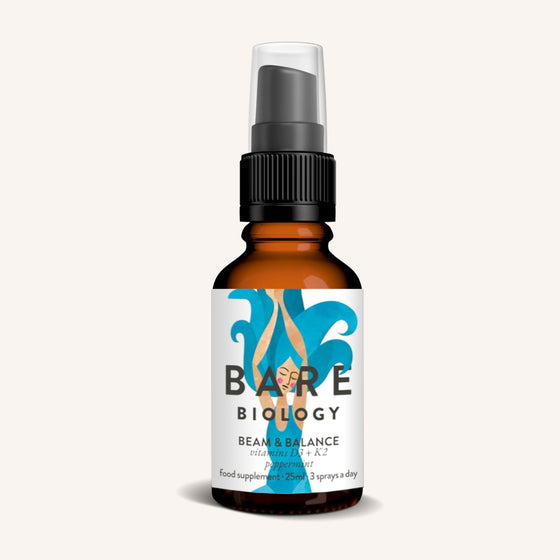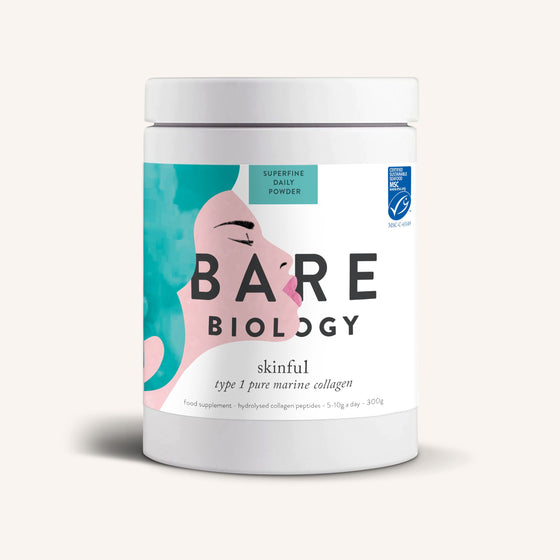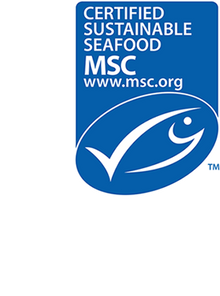Written by Nutritional Therapist Kate Fisk DipCNM, mBANT, mANP, rCNHC
The medicinal properties of garlic have been recognised for at least 4000 years, making it one of the oldest cultivated plants in the world. This pungent herb originates from central Asia but is now grown all over the world. Over the centuries, it has been used to treat a wide-ranging list of conditions, including depression, coughs, seasickness, dandruff, and earache.
This member of the onion family rightly deserves to be called a superfood, but what are its top benefits?
1. Packed with valuable nutrients
Sulphur, which gives garlic its distinctive taste and odour, is the star of the show here; garlic contains over 30 different sulphur compounds that provide many of its health benefits. It's also rich in flavonoids, naturally occurring compounds known for their powerful antioxidant and anti-inflammatory properties.
Eating garlic contributes to our daily intake of essential trace minerals and vitamins, including vitamin B6, which we need to keep our mood and energy levels on an even keel and vitamin C, a powerful antioxidant essential to support our immune system. In addition, just one clove of garlic provides around 3% of our daily requirement of manganese, which, along with other nutrients, plays a vital role in keeping our bones healthy.
2. Supports heart health
Many studies discuss the benefits of garlic when it comes to heart health.
High blood pressure is one of the most significant risk factors in the development of heart disease, which causes around a quarter of all deaths in the UK.
Allicin, one of the sulphur-rich compounds in garlic, stimulates the production of nitrous oxide, which relaxes our blood vessels and lowers blood pressure. Some studies consider garlic as effective as certain prescription medications in lowering blood pressure.
Garlic also inhibits the build-up of plaque in arteries and acts as an anticoagulant, meaning it can help stop potentially life-threatening blood clots from forming.
In addition, research shows garlic reduces the amount of triglycerides and cholesterol in the blood, both of which are considered risk factors for cardiac disease.
Although not all studies come back with the same positive results, these discrepancies may be due to the non-standardised preparation of the garlic used. It's widely recognised that large-scale human studies are required to better understand just how effective garlic is in supporting heart health.
3. Supports the immune system
The scientific jury still seems to be out on whether garlic can reduce the severity of the common cold, and decrease the chance of catching one in the first place.
But it is agreed the compounds in garlic have a beneficial effect on our immune system by increasing the attacking capacity of the immune cells, whose job it is to keep potentially harmful invaders, such as pathogenic bacteria, at bay.

4. Contains antioxidants
Free radicals are unstable molecules with the potential to cause damage to your body and speed up the ageing process. Though they're created naturally in the body, unhealthy choices such as smoking, stress and poor sleep can increase their numbers.
The compounds in garlic have been shown to protect against the damage caused by free radicals by improving the body's antioxidant status.
As oxidative damage contributes to many illnesses, including Alzheimer's, garlic may have a role in supporting such conditions in the future.
5. May benefits diabetes management
Type 2 diabetes is associated with erratic blood sugar levels, which cause insulin resistance. High blood pressure, excess body fat, especially around the middle, and an increased risk for heart disease are all complications that go hand in hand with this metabolic condition.
Garlic may not only help reduce high blood pressure and regulate lipid profiles (the amount of fat in the bloodstream) but has also shown promise in helping to improve blood sugar levels in just 1 -2 weeks.
6. Anti inflammatory
Short-term inflammation is not a bad thing. It's our immune system's natural and protective response to any physical injury or trauma. The inflammation process helps flood the damaged area with beneficial nutrients and white blood cells, whilst burning off any potential infection-causing microorganisms.
However, if inflammation persists, which could be due to stress, a poor diet, lack of exercise or food sensitivities, it can lead to more serious conditions.
The compounds in garlic have been shown to have anti-inflammatory effects in the body and, as such, have great potential to treat conditions associated with chronic inflammation, such as arthritis.
7. Antimicrobial
The sulphur compounds in garlic make it useful in treating or preventing infections caused by bacteria and mould, as well as common human parasites such as roundworm. [Textbook of Natural Medicine, Pizzorno, J.E, Murray M. T., 2013]. In many cases, garlic performs more efficiently against certain bacteria than its commonly used antibiotic counterpart and has even shown positive results against bacteria known to have become antibiotic-resistant.
And as allicin, the most abundant sulphur compound, is partly excreted via the lungs (hence 'garlic- breath' after we eat it), it's excellent for treating respiratory conditions.
In the absence of antibiotics, garlic was used during the two world wars to treat soldiers' wounds to avoid infection and gangrene.

8. Cancer protective
The use of garlic shows promise in offering protection against some cancer risks, although further studies are needed.
Allicin has been shown to protect cells from the damaging effects of some chemicals known to cause cancer. It has also been shown to reduce the size and number of cancer cells.
Garlic may provide a complementary treatment without the side effects associated with conventional treatment.
How to use garlic
To get the most out of garlic, it's best to eat it raw as its nutritional benefits decrease with cooking. So perfect your favourite recipes for hummus or guacamole, and always keep some in the fridge. Another good way to increase your garlic intake is to make some infused extra virgin olive oil, great for using in salad dressings or drizzling on sourdough.
If raw garlic's just not your thing, try adding it towards the end of the cooking process to preserve some of its beneficial compounds. And always chop or crush it a few minutes in advance, as this is when allicin is released. Doing this gives it a few minutes to develop.
What are the downsides to eating garlic?
Well, there's the smell, which seems to bother some more than others. This occurs because our bodies can't break down one of the compounds found in garlic called allyl methyl sulphide, which is released through our lungs and skin.
According to a 2014 study, the best way to neutralise the odour is by eating raw apple, parsley, spinach, or mint at the same time as the garlic or just after.
Some people report heartburn, bloating or flatulence after eating garlic, particularly those who are intolerant to the FODMAP fructan, which is found in garlic. If you think this might be you, try a garlic-infused oil. Fructans do not break down in oil, so as long as you make sure that all garlic solids are removed, you will be able to get some of the benefits of garlic without the discomfort.
As garlic can potentially increase blood clotting times, care should be taken with certain medications such as warfarin. If you're taking blood-thinning medications, suffer from a bleeding disorder, or are about to undergo surgery, always talk to your doctor before increasing your garlic consumption.






